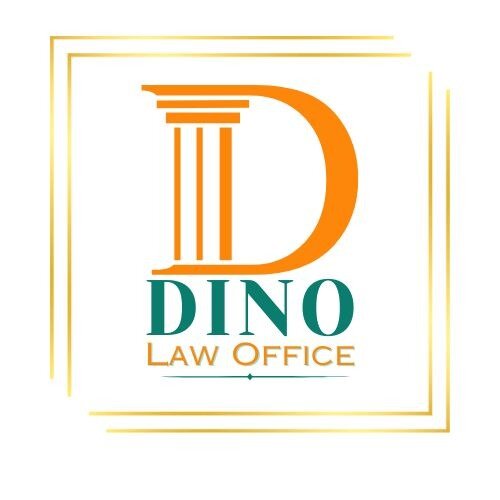Best Information Technology Lawyers in Makati City
Share your needs with us, get contacted by law firms.
Free. Takes 2 min.
List of the best lawyers in Makati City, Philippines
About Information Technology Law in Makati City, Philippines
Information Technology (IT) law in Makati City, Philippines governs the legal aspects related to technology, computer systems, data protection, cybersecurity, intellectual property, e-commerce, and other IT-related activities. With Makati City being a major business hub in the Philippines, these laws play a crucial role in protecting individuals, businesses, and the government in various IT transactions.
Why You May Need a Lawyer
There are several situations where seeking legal help in Information Technology may be necessary:
- Contracts and Agreements: When drafting or reviewing contracts, terms of service, or licensing agreements related to IT products or services.
- Intellectual Property Issues: Protecting your intellectual property rights, such as copyrights, trademarks, or patents, in the IT industry.
- Data Privacy and Protection: Understanding and complying with the data privacy and protection regulations applicable in Makati City.
- Cybersecurity and Data Breaches: Seeking legal advice in case of data breaches, hacking incidents, or cybersecurity threats affecting your IT systems.
- E-commerce Transactions: Ensuring compliance with laws related to online sales, electronic contracts, consumer protection, and taxation in the IT sector.
Local Laws Overview
In Makati City, several key aspects of local laws are particularly relevant to Information Technology:
- Data Privacy: The Data Privacy Act of 2012 protects personal information collected, processed, and stored by individuals, organizations, or the government. Compliance with data protection regulations is essential.
- Cybercrime: The Cybercrime Prevention Act of 2012 defines cybercrime offenses, such as hacking, identity theft, online fraud, and unauthorized access to computer systems. It also prescribes penalties for such offenses.
- E-commerce: The Electronic Commerce Act of 2000 lays down the legal framework for e-commerce transactions, electronic contracts, and consumer protection. Compliance with these laws is crucial for businesses engaged in online transactions.
- Intellectual Property: Intellectual property laws protect original creations of the mind, such as software, inventions, inventions, and other IT-related works. Understanding copyright, trademark, and patent laws is important for IT businesses.
Frequently Asked Questions
1. Is obtaining consent necessary before collecting personal data in Makati City?
Yes, under the Data Privacy Act of 2012, obtaining the consent of the data subject is generally required before collecting their personal data, unless exceptions apply. Consent should be informed, specific, and freely given.
2. What should I do if my IT systems have been hacked?
If your IT systems have been hacked, it is crucial to take immediate action. Contact a lawyer specializing in cybersecurity and data breaches to guide you through the process of assessing the situation, securing your systems, and reporting the incident to the appropriate authorities.
3. Can I copy software or use it without a proper license?
No, copying software without a proper license or using it beyond the scope of the license agreement is generally considered copyright infringement. It is essential to obtain appropriate licenses to use software legally.
4. What are the obligations of an online seller in Makati City?
An online seller in Makati City is required to comply with the provisions of the Electronic Commerce Act of 2000. This includes providing accurate product information, honoring consumer rights, ensuring secure payment options, and complying with taxation regulations.
5. How can I protect my intellectual property rights in the IT industry?
To protect your intellectual property rights in the IT industry, it is advisable to consult with an intellectual property lawyer. They can help you register copyrights, trademarks, or patents for your original IT-related works, and assist in enforcing your rights if infringements occur.
Additional Resources
Here are some additional resources and organizations related to Information Technology that can be helpful for someone in need of legal advice:
- Department of Information and Communications Technology (DICT): The DICT is a government agency responsible for the development, supervision, and coordination of information and communication technology in the Philippines.
- Integrated Bar of the Philippines (IBP) - Makati City Chapter: The local chapter of the IBP provides a directory of lawyers in Makati City specializing in various areas of law, including IT law.
- Intellectual Property Office of the Philippines (IPOPHL): The IPOPHL is the government agency responsible for the registration and protection of intellectual property rights, including copyrights, trademarks, and patents.
Next Steps
If you require legal assistance in Information Technology, here are the steps you can follow:
- Identify the specific area of IT law you need assistance with, such as data privacy, cybersecurity, intellectual property, or e-commerce.
- Research and compile a list of reputable law firms or lawyers specializing in IT law in Makati City.
- Contact the selected law firms or lawyers to schedule consultations, where you can discuss your specific situation and seek legal advice.
- During the consultations, provide all necessary information and documents related to your case for a thorough evaluation.
- Based on the consultations, select a lawyer or law firm that best suits your needs, taking into consideration their expertise, experience, and fees.
- Engage the selected lawyer or law firm to represent you and guide you through the legal process related to your IT-related matter.
Lawzana helps you find the best lawyers and law firms in Makati City through a curated and pre-screened list of qualified legal professionals. Our platform offers rankings and detailed profiles of attorneys and law firms, allowing you to compare based on practice areas, including Information Technology, experience, and client feedback.
Each profile includes a description of the firm's areas of practice, client reviews, team members and partners, year of establishment, spoken languages, office locations, contact information, social media presence, and any published articles or resources. Most firms on our platform speak English and are experienced in both local and international legal matters.
Get a quote from top-rated law firms in Makati City, Philippines — quickly, securely, and without unnecessary hassle.
Disclaimer:
The information provided on this page is for general informational purposes only and does not constitute legal advice. While we strive to ensure the accuracy and relevance of the content, legal information may change over time, and interpretations of the law can vary. You should always consult with a qualified legal professional for advice specific to your situation.
We disclaim all liability for actions taken or not taken based on the content of this page. If you believe any information is incorrect or outdated, please contact us, and we will review and update it where appropriate.












